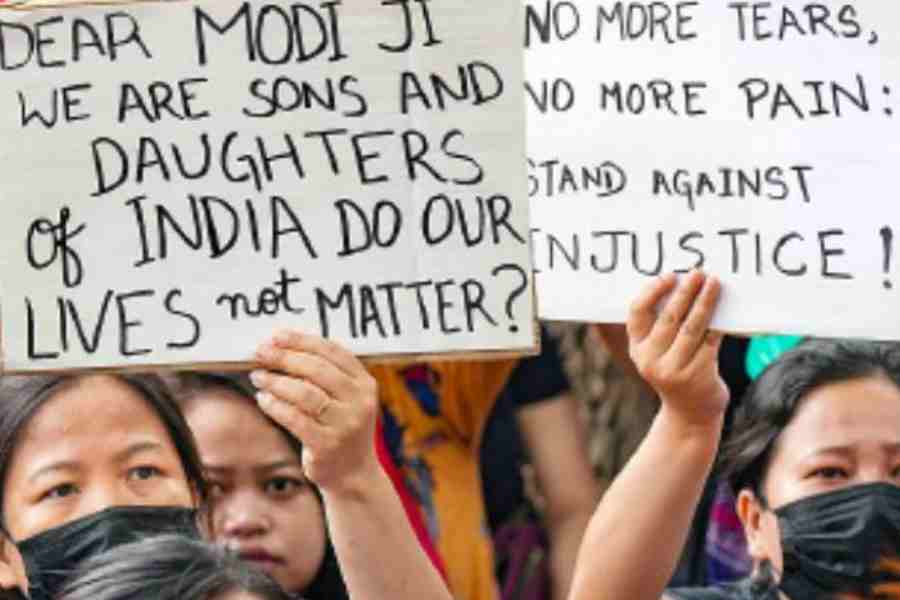New Delhi, Aug. 16: The haze over security concerns surrounding Huawei has just deepened with security agencies scuttling the Chinese telecom equipment maker’s plans to establish a manufacturing facility in the country.
Huawei, which already has a set-up in Bangalore that develops computer software for telecommunication facilities, has been denied permission to set up another plant at a cost of $60 million to make telecom equipment.
The reason: it would compromise the country’s security by giving the Chinese control over India’s telecommunications systems.
The irony of it is that Huawei already has a solid footprint in India having installed telecom equipment worth more than Rs 2,000 crore ? most of it for government-owned Bharat Sanchar Nigam Ltd (BSNL) and Mahanagar Telephone Nigam Ltd (MTNL).
The bogey of security concerns over Huawei’s presence in India has been raised before: in 2001, it was alleged that Huawei had supplied telecom software developed at its Bangalore facility to Pakistan through its firm in Afghanistan.
A senior communications ministry official said, “It is absurd (not to allow Huawei to set up a manufacturing base in India). The company has set up networks for BSNL and MTNL during the last two to three years and supplied customer premises equipment (fixed wireless/wireline telephones).”
“But we would not like to enter into any controversy. If the home ministry or any other security agency asks us to blacklist the company, we will do so,” the official added.
The suspicion is that there is a strong western lobby of telecom equipment makers, which has been trying to raise a scare about Huawei’s presence in India. They fear that Huawei ? an aggressive price warrior ? will muscle them out of lucrative telecom deals in the country.
“Most of the equipment vendors are aware that a clause will be added in the future telecom tenders that will permit bids by only those manufacturers which have a manufacturing base in India. They will have to compulsorily make a 20 per cent value addition to the equipment in India for it to be sold here,” said the official in the communications ministry.
However, industry observers rejected the view that Huawei’s aggression on price had worked against it. They felt that the cost of telecom equipment were falling anyway.
Nokia, Ericcson, Motorola, Alcatel, Nortel, Siemens and Lucent are suppliers of telecom equipment in India, but none of these companies have a manufacturing base in the country.
A senior official at the Telecom Engineering Centre (TEC), which comes under the communications ministry, said, “The security concerns need to be rational. How can you allow a company to set up a network with equipment manufactured outside India and hope that the security is ensured, since the services are provided by a local company? What is the guarantee that bugs have not been installed already?”
The TEC is responsible for authorising the validity of equipment to be installed or sold in India.
The Chinese company has already set up networks and is in the process of laying the critical broadband network for BSNL.
It will install the asynchronous digital subscriber line (ADSL) equipment for broadband services of BSNL under the National Infrastructure Backbone scheme.
ADSL is a technology that allows subscribers to simultaneously speak on the phone, while browsing the Internet on the same telephone line.
Huawei has also bagged a three-year contract worth $70 million from Himachal Futuristic Communications Ltd to supply equipment for phone networks. Under the contract, Huawei will supply equipment for HFCL’s phone networks in Punjab, Himachal Pradesh and Jammu.
It also has an agreement with HFCL to jointly bid for the government’s IT and telecom orders.
Early this year, the Chinese company, along with HFCL, had bagged an order to set up a network of 2-lakh lines for MTNL in Delhi and Mumbai.
A senior expert on Chinese industries attached with one of the apex industry chambers said, “Huawei had $8 billion worth of orders last year, out of which $4 billion was international. It is one of the top five telecom equipment vendors in the world. They consider India as a big market after the US and they will be aware that any wrong move would jeopardise their business fortunes.”
He ruled out any diplomatic row over the issue. “It is purely a commercial issue and the security of every country is paramount.”










